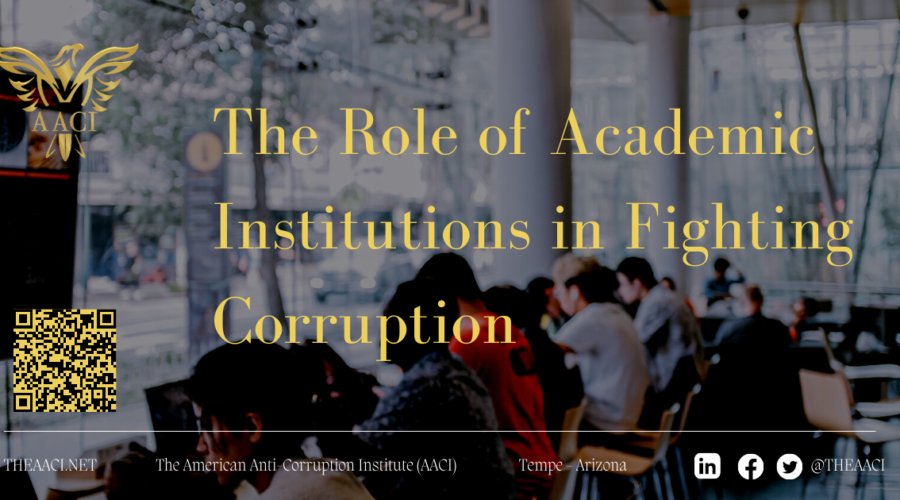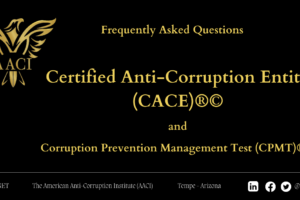May 19, 2022
Mike Masoud
The importance of universities, colleges, and other educational institutions in preventing and deterring corruption cannot be overstated. Promoting an ethos of accountability and honesty in the academic community begins with fostering a culture of integrity and transparency among students and faculty members alike. That is why, in addition to organizing regular ethics lectures and information sessions for students and employees, academic institutions should take steps to enhance and effectively implement their anti-corruption rules.
Academic institutions are uniquely positioned to play a key role in preventing corruption. Not only do they educate future leaders, but they also have a unique opportunity to impart the values of integrity and honesty through the example they set by maintaining a high standard of transparency, accountability, and ethical conduct. By ensuring that all staff members are held to these standards, academic institutions can play an important role in creating an honest and transparent environment that discourages corruption and promotes trust between stakeholders.
The Importance of Anti-Corruption Education at Academic Institutions
Anti-corruption education is one of the most effective ways to increase public awareness and improve public attitudes towards corruption. One of the main reasons why corruption is so widespread is that most people have a poor understanding of what it means and how it can negatively impact society. By educating people about the causes and consequences of corruption, as well as potential solutions for combating it, we can help to build a more informed and anti-corruption society.
Education is one of the most powerful tools we have for combating corruption. By teaching students about the causes and consequences of corruption, as well as potential solutions for tackling it, we can help to build a more informed and anti-corruption society. Corruption is a complex issue that affects all areas of society, from politics to business to law enforcement. Because of this, it is important that we educate people from all walks of life in order to create a more informed public.
Education, in particular, of young people, is an important platform for curbing corruption. Because they do not know any better than to trust those in positions of authority, young people are frequently the most vulnerable to being targeted by corrupt people once they enter the workforce and begin making their own decisions. We can help young people make better judgments later in life by educating them about the hazards of corruption and how to resist being coerced into engaging in corrupt behaviors.
Certified Anti-Corruption Fellow (CACF)
The American Anti-Corruption Institute (AACI) provides academic institutions with the CACF program to help them equip their students with an optimum blend of anti-corruption knowledge and skills. It is an intensive one-day instructor-led program that ends with a proctored online exam. The CACF covers the following topics:
- Internal control
- Fraud and corruption
- Corporate governance
- Management and decision making
- The global commitment to fighting corruption
The fight against corruption in any country will not be effective unless its academic institutions do their anti-corruption job and perform their duties towards stakeholders.











































